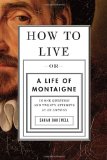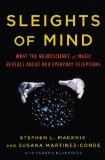
How to Live: Or A Life of Montaigne in One Question and Twenty Attempts at an Answer by Sarah Bakewell (Other Press, 2010)
(link for amazon.co.uk)
I’ve been watching for this book ever since reading Bakewell’s Guardian series “Montaigne, philosopher of life” and was fortunate to grab a review copy through NetGalley. How to Live has been available in the UK since early 2010 but just recently appeared in a US edition published by Other Press.
This book provides a great background for approaching Montaigne’s Essays. It is a life of Montaigne and also a life of his book, tracing the book’s changing reception through the centuries. We learn of Montaigne’s near-death experience, from which he concluded: “If you don’t know how to die, don’t worry; Nature will tell you what to do on the spot, fully and adequately. She will do this job perfectly for you; don’t bother your head about it.” (p. 21)
Despite living in an era dominated by religious strife, Montaigne was much influenced by the Hellenistic philosophies of Stoicism, Epicureanism and Skepticism, whose answer to the question ‘How to Live?’ involved eudaimonia, or “human flourishing,” through ataraxia or equilibrium. Skepticism is especially characteristic of Montaigne, and “most of Montaigne’s thought consists of a series of realizations that life is not as simple as he has just made it out to be.” (p. 36)
Through all his self-exploration Montaigne did not arrive at a unified view of himself, as Bakewell describes:
“We are all patchwork,” he wrote, “and so shapeless and diverse in composition that each bit, each moment, plays its own game.” No overall point of view existed from which he could look back and construct the one consistent Montaigne that he would have liked to be. Since he did not try to airbrush his previous selves out of life, there was no reason for him to do it in his book either.
(p. 286-287)
Product description from the publisher:
How to get along with people, how to deal with violence, how to adjust to losing someone you love—such questions arise in most people’s lives. They are all versions of a bigger question: how do you live? How do you do the good or honorable thing, while flourishing and feeling happy?
This question obsessed Renaissance writers, none more than Michel Eyquem de Monatigne, perhaps the first truly modern individual. A nobleman, public official and wine-grower, he wrote free-roaming explorations of his thought and experience, unlike anything written before. He called them “essays,” meaning “attempts” or “tries.” Into them, he put whatever was in his head: his tastes in wine and food, his childhood memories, the way his dog’s ears twitched when it was dreaming, as well as the appalling events of the religious civil wars raging around him. The Essays was an instant bestseller and, over four hundred years later, Montaigne’s honesty and charm still draw people to him. Readers come in search of companionship, wisdom and entertainment—and in search of themselves.
This book, a spirited and singular biography, relates the story of his life by way of the questions he posed and the answers he explored. It traces his bizarre upbringing, youthful career and sexual adventures, his travels, and his friendships with the scholar and poet Étienne de La Boétie and with his adopted “daughter,” Marie de Gournay. And we also meet his readers—who for centuries have found in Montaigne an inexhaustible source of answers to the haunting question, “how to live?”
See also: book website





